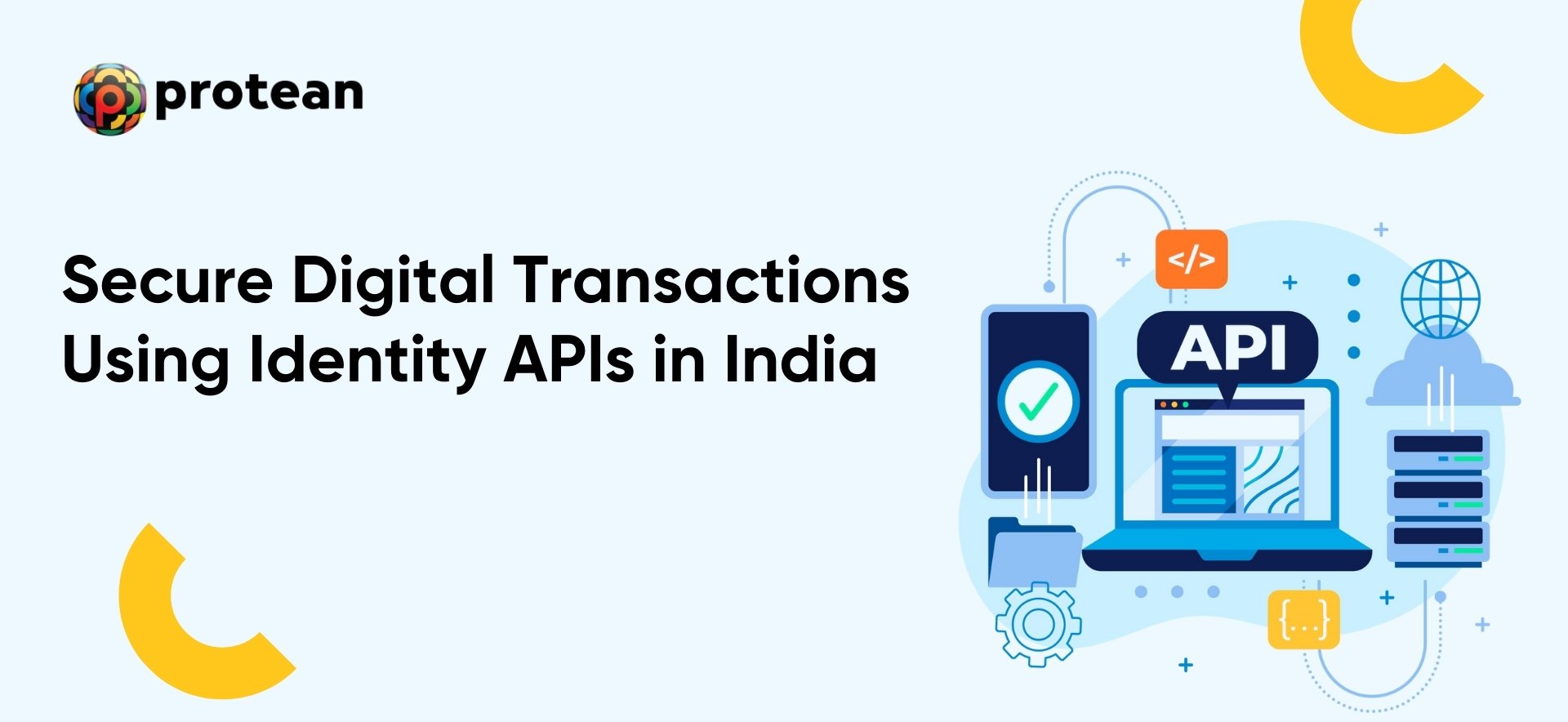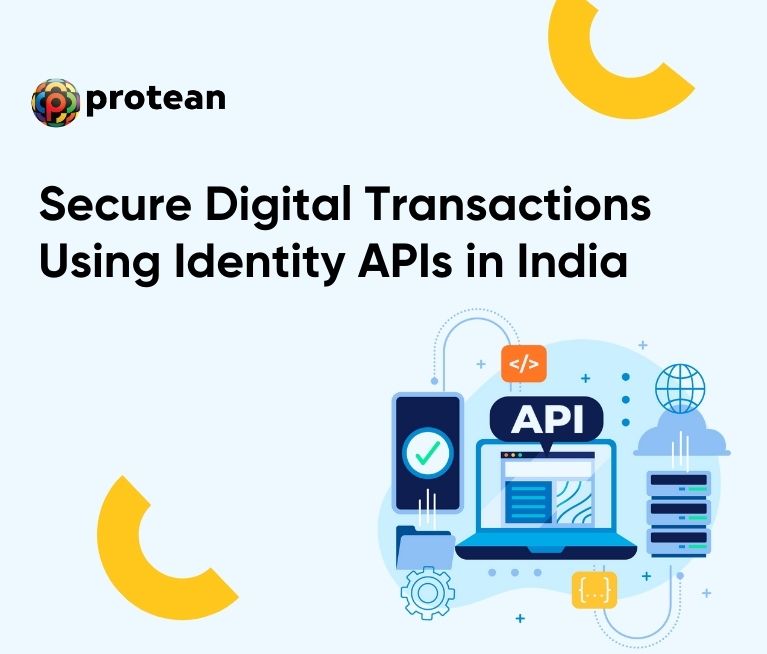Digital transactions have become a part of everyday life in India, from mobile banking and e-commerce to government services. With this shift, ensuring that users are who they claim to be has become more important than ever. Manual verification methods are often slow and prone to errors, which is why identity verification APIs are emerging as the backbone of secure digital interactions.
These APIs allow different platforms to confirm identity documents in real time, reducing delays and increasing trust. As we move towards a more digitally connected society, the role of APIs in safeguarding transactions is expected to grow rapidly.
What are Identity Verification APIs?
Identity verification APIs are digital connectors that integrate with platforms to validate the authenticity of user information. They cross-check details provided by users with official records and return confirmation within seconds.
Examples include:
- PAN card verification API for financial and compliance checks.
- API authentication passport to validate travel and international identity documents.
- GST API integration for businesses to verify the tax records of vendors or partners.
- Online identity verification API for platforms that need to confirm the legitimacy of users before transactions.
By linking these services with secure government and institutional databases, APIs eliminate the need for repeated manual checks.
Why Do APIs Matter for Secure Transactions in India?
India’s rapid adoption of digital services brings opportunities and risks. On one side, online banking, digital wallets, and e-governance platforms create convenience. On the other hand, fraud, identity theft, and compliance lapses pose threats.
This is where APIs make a difference:
- Speed: Real-time validation reduces waiting time for approvals.
- Accuracy: Data is pulled directly from trusted sources.
- Scalability: Businesses can handle large numbers of verifications simultaneously.
- Transparency: Clear audit trails ensure accountability.
By embedding identity verification at the API level, platforms not only meet regulatory standards but also provide users with a safer environment.
PAN Card Verification API: Supporting Finance and Compliance
In India, the PAN card is a widely used document for taxation, banking, and financial transactions. A PAN card verification API ensures that details provided by individuals or businesses match official records.
This is especially useful for:
- Banks and NBFCs are conducting Know Your Customer (KYC) checks.
- Digital lending platforms are approving loans quickly.
- Businesses onboarding vendors or freelancers.
The automation provided by such APIs reduces the manual effort involved and minimises the scope for errors or misuse.
| Also Read: Bank Account Verification |
GST API Integration: Strengthening Business Verification
For businesses, verifying GST details is a crucial step before entering into contracts or partnerships. GST API integration enables organisations to check registration validity and filing history in real time.
Benefits include:
- Authenticating vendors to avoid compliance risks.
- Ensuring smooth credit processes for financial institutions.
- Reducing disputes caused by incorrect tax records.
By automating these verifications, businesses gain efficiency and avoid delays in their supply chains.
Passport Authentication Through APIs
For international transactions and travel-related services, API authentication passport plays a key role. It allows platforms to cross-verify passport details against authorised databases.
This is vital for:
- Visa processing platforms.
- Airlines and travel agencies.
- Global financial services validating cross-border users.
Such automation reduces paperwork while maintaining a high level of security for sensitive identity documents.
Online Identity Verification API for Everyday Transactions
Beyond specific documents, many platforms use a general online identity verification API to manage user onboarding and security. For instance, e-commerce platforms may integrate these APIs to reduce fake account creation, while ride-hailing apps use them to confirm driver or customer credentials.
This wider application shows how APIs are not limited to finance or government services but are extending into daily activities.
Real-World Examples of How APIs Add Value
- Banking: Faster customer onboarding with API-driven PAN and Aadhaar checks.
- E-commerce: Preventing fraud through real-time ID validation.
- Telecom: Automating subscriber identity checks during SIM activation.
- Logistics: Verifying driver licences or vehicle details before onboarding fleet partners.
These scenarios highlight how identity verification APIs streamline both compliance and user experience.
| Also Read: Digital API Solutions |
Challenges and Considerations
Despite their promise, a few issues need to be addressed for widespread adoption:
- Data privacy safeguards must be in place.
- Uniform standards across states and institutions are required.
- Awareness and training for smaller businesses remain essential.
Balancing convenience with security will be the deciding factor in how APIs shape the future of digital identity verification.
Conclusion
Identity verification is at the heart of secure digital transactions. With tools like PAN card verification API, GST API integration, API authentication passport, and online identity verification APIs, India is moving towards a system where trust can be established instantly and transparently.
As adoption grows, these solutions will not just protect against fraud but also enable smoother experiences for individuals and businesses alike.
Frequently Asked Questions
1. What is an identity verification API?
It is a digital interface that allows platforms to verify user identities by connecting to official records such as PAN, GST, or passport databases.
2. How does a PAN card verification API help?
It ensures that the PAN details provided by users match official records, making it useful for banking, compliance, and onboarding.
3. Why is GST API integration important for businesses?
It allows companies to validate vendor or partner tax records quickly, reducing compliance risks and disputes.
4. What does API authentication passport mean?
It refers to using APIs to validate passport details for travel, visa processing, or international financial services.
5. Can online identity verification APIs be used outside finance?
Yes, they are widely used in sectors like telecom, e-commerce, and mobility services to confirm user or service provider identities.

